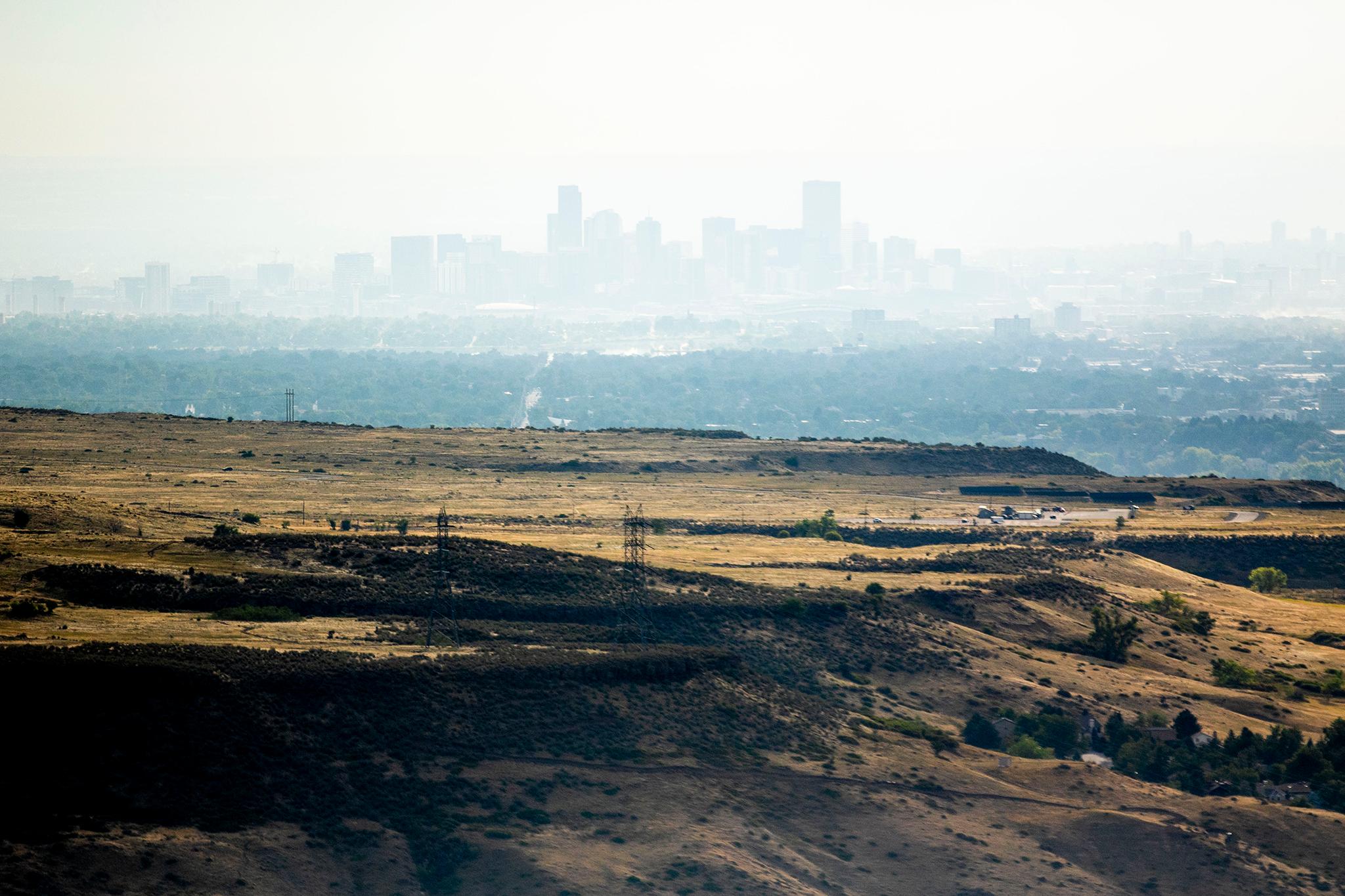
A Colorado House committee approved a controversial air quality bill Thursday to help address dangerous concentrations of ground-level ozone pollution along the Front Range and in other parts of the state.
But the legislation only survived after sponsors gutted the core of the proposal.
The centerpiece was a plan to reform Colorado's process to approve new or modified sources of air pollution. The overhaul would have forced regulators to ensure projects — like oil and gas drilling pads or new factories — wouldn't put the state further out of compliance with federal clean air standards.
After fierce opposition from business groups and a cold reception from Gov. Jared Polis, sponsors scrapped those plans in favor of creating a committee to study the potential impacts and benefits of permitting reform.
State Rep. Jennifer Bacon, a Denver Democrat and a lead bill sponsor, said she hopes private companies don't walk away from the process. In the long term, she said, the state can't continue to put corporate profits above communities already suffering from poor air quality.
"I'm not mad at business. It is their job to make money," Bacon said. "It is our job to interact with industry to keep our neighbors and our communities safe."
Other parts of the legislation survived. The amended bill would require Colorado’s oil and gas regulators to define "cumulative impacts," a term used to refer to the combined effects of multiple pollution sources. It would also open the state's pollution enforcement process to greater public input.
Behind the debate is a repeated failure to improve air quality.
Earlier this week, the American Lung Association issued a new report ranking metro Denver as the sixth-worst polluted city in the U.S., up one spot from its 2022 report.
The Front Range hasn't managed to meet federal air quality standards for decades. As a result, the U.S. Environmental Protection Agency declared a nine-county region from Fort Collins to Castle Rock a "severe" violator of the U.S. Clean Air Act last year, forcing the state to draft a new plan to bring the region into compliance.
The process has brought a new focus on the state's oil and gas industry. Last year, the Colorado Air Pollution Control Division issued a major correction to its official ground-level ozone models, which showed the industry is a far larger contributor to the problem than previously thought.
Gov. Jared Polis responded by ordering a crackdown in February. In a letter, he called on regulators to force the industry to reduce emissions of nitrogen oxides, which react with other pollutants on hot, sunny days to form ground-level ozone. Under the plan, oil and gas operators must slash their emissions 30 percent by 2025 and 50 percent by 2030.
To meet those goals, the governor's office has suggested the industry should pursue newer techniques, like using electricity to power hydraulic fracturing and drilling. Those processes tend to rely on massive internal combustion engines at the moment.
Meanwhile, the Polis Administration has warned against using permitting reform as a way to take on ozone pollution, saying it could scare away new industrial investments and overwhelm regulators.
At the hearing on Thursday, Trisha Oeth, the director of environmental health and protection at the Colorado Department of Public Health and the Environment, said the original bill would have cost more than $30 million to implement.
"I fear imposing the requirements of this bill on my staff would distract from other commitments we have made in the near term that collectively will have a much larger positive impact on air quality," Oeth said.
Industry representatives mounted a vocal opposition to the permitting reform plans
The Colorado Chamber of Commerce led a coalition of more than 50 business groups to oppose the legislation, warning it could impose costly new regulations on breweries, bakeries, hotels and other operations.
Colorado's oil and gas industry also lobbied against the plan. Ahead of the Thursday bill hearing, the Colorado Oil and Gas Association and the Colorado chapter of the American Petroleum Institute released a 31-page review of the bill, saying the permitting reform plans would amount to a de facto drilling ban.
After passing the House Energy and Environment Committee on an 8-3 vote, the revised bill now moves to the House Appropriations Committee.
Funding for public media is at stake. Stand up and support what you value today.









